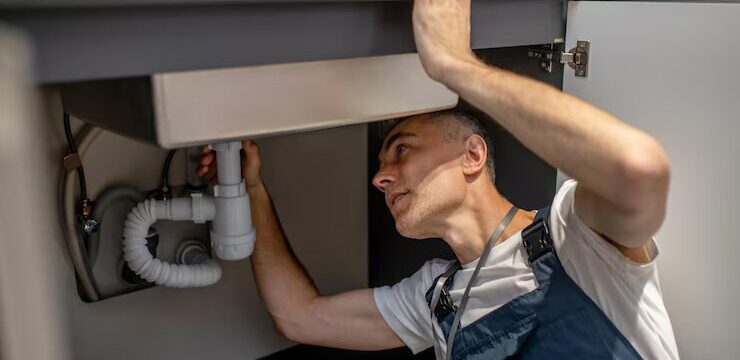All Categories
Featured
Simply replacing sinks and various other fixtures without ensuring that the existing piping and connections are audio is never advised. A specialist plumbing will certainly not just have the ability to make certain every little thing functions the means it should, they'll have the ability to provide valuable guidance and help keep remodelling costs down. Do not wait till you have an emergency situation to discover a pipes firm you can rely on.
This article remained in Smart Cash and I located it fascinating due to the fact that the same recommendations administered in it coincides clever guidance I have actually read listen to for several years. <!-> <!-><!-> <!-><!-> <!-><!-> <!-><!-> <!-><!-><!-> <!-><!-><!-><!-> <!-><!-><!-><!-><!-> <!-><!-><!-><!-><!-> <!-><!-><!-><!-><!-> <!-><!-><!-><!-><!-> <!-><!-><!-><!-> <!-><!-><!-> <!-><!-><!-><!-><!->By Dimitra KessenidesSeptember 19, 2005 <!-> <!-> Water is the single most usual source of home damages, according to a nationwide evaluation by Safeco Insurance, a Seattle-based home owner's insurer.
The biggest perpetrators: water heating units and cleaning machines. A broad swath of the plumbing sector is made up of handymen, guys with devices and a little plumbing know-how. The finest way to reduce your danger is to employ a knowledgeable plumbing technician.
Should I Hire A Plumber?
In states without licensed plumbing professionals, your next-best bet is a licensed plumbing specialist, or a minimum of somebody that comes from a pipes trade organization. <!-><!-> Risa Hoag, a public relations firm proprietor, was amazed when much of the job in a new upstairs restroom in her Nanuet, N.Y., home was done by people other than the plumbing professional that gave her the first quote.
"Nobody inspected his work, and we needed to tear out a brand-new ceiling," Hoag states. <!-><!-> It's usual for plumbers to bring pupils on a task; actually, it's a required part of the licensing process for students. Yet while in lots of states a certified plumbing technician is meant to monitor, that doesn't constantly take place.

Some will certainly inform you to this beforehand; others will not. Many pipes issues are hidden, needing wall surfaces, floor tiles and floor boards to be removed. And while a little demolition is hard to avoid, many plumbings will not fix the damages they have actually made, suggesting that if the pipes has actually been fixed their job is done.
It's common for plumbers to reschedule a visit since they're missing a component. <!-><!-> A great plumbing needs to ask inquiries when you call the problem in so he'll understand what to bring in the initial area. If he doesn't, ask him what he'll need and whether he has it.
Then it's much more crucial that the plumbing technician mindful particular needs or special parts required. Sometimes, a plumbing technician may ask the client to obtain customized components or aesthetic items beforehand. "If the customer recognizes what he wants and likes, or if a developer has actually gotten something in the past, he probably can get it faster than I can," Silk claims.
Is Diy Plumbing Safe?
It does not ensure that he or she can handle absolutely anything that comes up. Several years earlier, a client worked with Harvey Kreitenberg, a Los Angeles-based accredited plumbing, to mount new components made by a German maker. "I had not been knowledgeable about the products, so I asked him to provide me among each of the different fixtures to play about with," Kreitenberg states.
"I admitted my ignorance, and they appreciated it," he says. <!-><!-> Understand that even the best-intentioned plumber can obtain flummoxed; it doesn't constantly suggest that she or he isn't certified. Just recently, there have been a number of innovations and adjustments in water heating units, as an example, and there are numerous even more bathroom varieties than there when were, with different sort of flushing devices.
Pedersen, a retired pharmaceutical exec, was unwilling to call any individual else. The home, developed around 1910, has elaborate pipes and piping issues, and "he recognizes the house actually well," Pedersen says. <!-> <!-> While a less competent plumbing professional might seem an indicator of a substandard operation, it can also be the indication of someone in need.
It was just after the remainder of the space was ended up that Percel uncovered the home heating system really did not work. It ends up the pipelines weren't the best type for steam warmth, however the plumber had never tested them to locate out. "I would certainly simply presumed he 'd tested the pipes and looked for vapor," Percel claims.
Lots of plumbers assume it's the customer's duty to verify that existing components function prior to making changes. Percel's plumbing technician was not the owner of the company, whom he 'd talked to and whom he assumed he was working with.
Should I Do My Own Plumbing?
Silk, the Maryland plumber, says an excellent plumber needs to be eager to talk with an issue with a customer on the phone. Regional plumbing-supply stores, he says, can also use guidance and suggestions for basic fixings such as a leaky faucet or a shower-head substitute. <!-> <!-> John Rendahl, a sales link at R&D Pipes Products near Seattle, states lots of clients go to the shop entirely to ask just how to deal with something themselves.

He recalls one customer that recently came in questioning a trouble with a 35-year-old Kohler low-boy toilet that wouldn't stop running. Rendahl opened a parts publication, looked up the shutoff for that certain commode and, based upon the problem the consumer explained, advised that he change the container sphere.
Latest Posts
Plumber local to ,
Plumbing
Emergency Plumbing